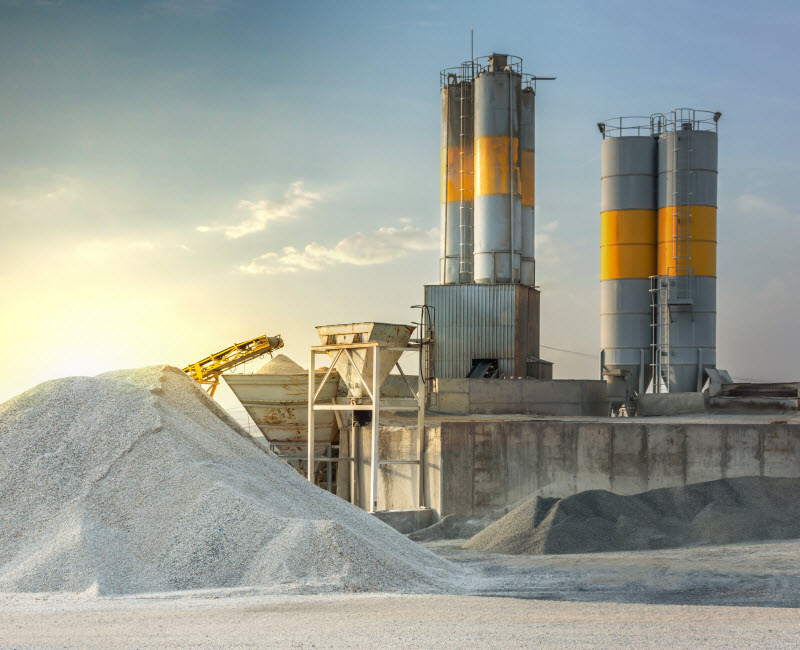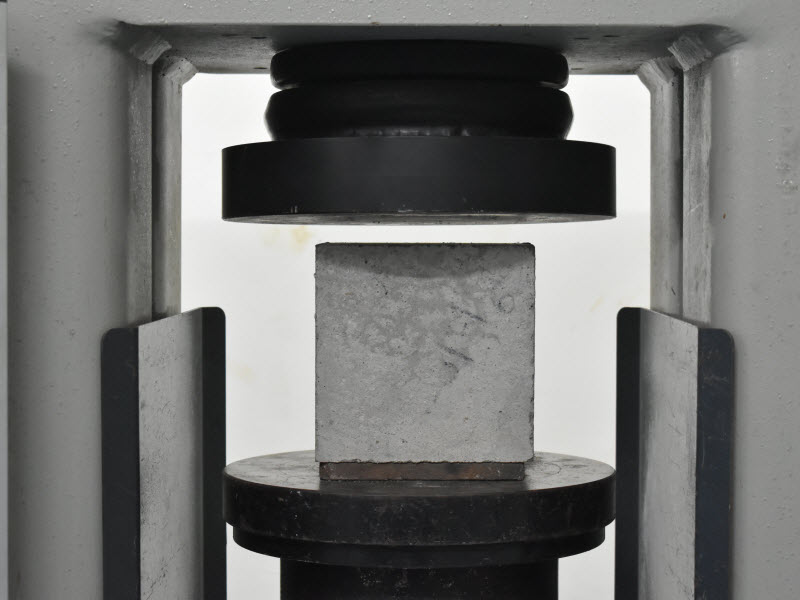
CCS technology has the potential to mitigate the effects of climate change by capturing carbon dioxide (CO2) emissions from industrial processes or power generation and storing them deep underground. One crucial component of CCS is the construction of injection wells, utilised to inject CO2 underground for long-term storage.
Among the various materials used for well construction, cement is often the preferred option due to its strength, durability and ability to seal the well. Cement provides a robust and durable material for constructing wells, and cement is less prone to corrosion and degradation over time compared to other materials such as steel, reducing the likelihood of well failure and CO2 leakage.
The compatibility of the cement formulation with high concentration CO2 environments is clearly very important. Cement designs used in CCS wells must be able to withstand the aggressive chemical and physical environments created by the injected CO2, including low pH, high pressure, temperature cycling and chemical reactions with the cement components and in situ reservoir fluid.

Cement is an excellent sealing material
Cement serves as an excellent sealing material that can effectively isolate the injection zone from the surrounding formations, preventing CO2 leakage. The cementing process involves pumping a cement slurry into the annular space between the casing and the formation, creating a barrier that prevents CO2 from escaping.
Well designed and constructed cement seals can effectively prevent CO2 leakage, reducing the risk of environmental damage and ensuring the long-term integrity of the well.
The cement must form a low permeability barrier between the CO2 storage reservoir and the surrounding formations to ensure containment and prevent CO2 migration into overlying strata.
It is a well understood and widely used material in the oil and gas industry, and its use in CCS wells leverages existing knowledge and expertise to build reliable and robust wells. The use of a familiar material reduces the potential for unexpected complications during construction and ensures that the well is constructed to the highest standards.

Adhesion, thermal stability & durability
Cement properties can be adjusted to meet the specific conditions of the well, including temperature, pressure and fluid composition. This flexibility allows engineers to design a well that is optimised for the unique characteristics of the site and ensure that the well can withstand the stresses and pressures associated with CO2 injection.
The cement must bond strongly to the well casing and surrounding rock formations to prevent fluid migration along the casing-cement-rock interfaces. This bond may need to be validated by logging to confirm an acceptable seal has been achieved.
CCS wells can be exposed to extreme thermal cycling across their lives. The cement must remain stable at high and low temperatures and resist thermal degradation, which can result in cracking and failure of the cement structure and it must be durable and have a long service life. This is critical to ensure the well integrity is maintained over the lifetime of the CCS project.
In addition to these considerations, other factors such as the well design, the type and location of the target formation, the nature of CO2 being injected, and the expected geomechanical conditions must also be taken into account when developing a cementing plan for a CCS well.
Cement is a cost-effective option for well construction, providing a reliable and durable well compared to other materials like steel. The use of cement can reduce the overall cost of CCS projects, making this technology more accessible to a wider range of industries and applications.
CCS Energy has the well engineering expertise to assist small to medium sized oil and gas exploration companies enter the arena of carbon capture and storage with confidence. We access years of technical experience in the petroleum industry, and provide all aspects of technical design, project management and regulatory administration.
We unearth the legal, economic and operational risks and opportunities directly affecting your business and the suitability of a carbon capture and storage solution, and we project manage a solution that creates positive long-term benefits to the oil and gas industry and the environment.

How can CCS Energy help
CCS Energy is committed to forging your path toward net zero emissions. Our expertise can help clients set realistic targets and tap into additional asset value through carbon offset mechanisms available through various global emission trading schemes.
Our team members are CSS experts and well engineers, passionate about identifying efficient and cost-effective transition technology to capture and store carbon, and reduce your operation’s carbon footprint.
When you are ready to reduce your carbon emissions footprint and push forward to a sustainable and environmentally positive mining operation give our team a call. We only offer the very best solutions and technical expertise.



